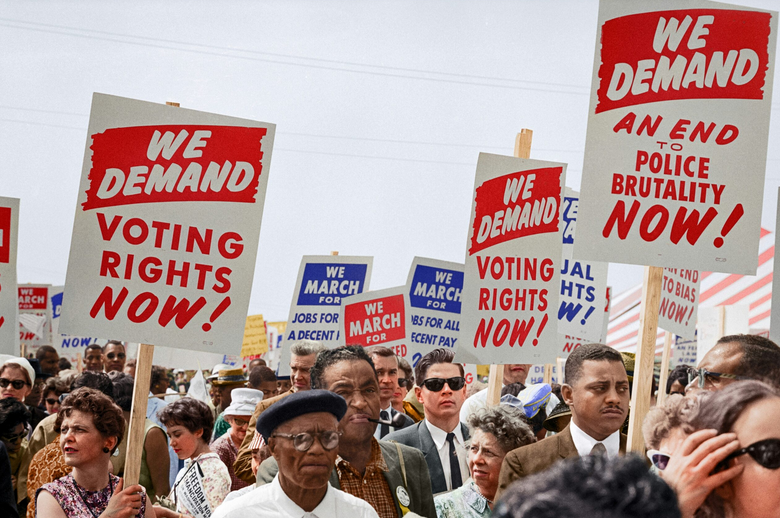Photo: YouTube
“Black culture is discursive. And what she is saying is translated by singing, dancing and drum. The treble speaks of the environment, the medium, what is in the environment and the low, what is happening there. “–Carlos Negreiros
Carlos Negreiros, leader of the Orquestra Afro-Brasileira, chose the Teatro Ipanema stage to celebrate his 80th birthday, perform the last show of the Orquestra Afro Brasileira. He then made the stage the tunnel for his return to the ancestors due to a sudden cardiac event while in the dressing room after having participated in the Uma Roda para Moacir Santos show.
Between the solar return and the last moonlight, there were exactly thirty days’ difference. Teatro Ipanema was also where the wake took place on July 15, 2022.
The Afro-Brazilian Orchestra lost its leader and the world lost a reference for Afro-Brazilian rhythms. Carlos Negreiros was the last remaining original Orquestra Afro Brasileira member, leaving behind an immaterial historical heritage as a legacy.
As a precursor in sound harmony between the musical cultures of the northern and southern continents of the planet, Negreiros had his artistic intuition that was developed through the founder of the Orquestra Afro-Brasileira, maestro Abigail Moura, in 1970. Although Negreiros was a man who carried Blackness in his surname, the Black world of the Afro-Brasileira orchestra was foreign to him. However, he had enjoyed the atmosphere. Could it be that this great astral was not a connection with their ancestors?
Negreiros made history by mixing the sound of traditional European instruments such as the sax and clarinet and resonating with traditional African instruments such as the agogô and the berimbau. Under his leadership, the Orquestra Afro-Brasileira was recognized by the public and critics for performing its shows in Portuguese and African languages, such as Bantu and Yoruba.
According to the Orquestra Afro Brasileira Facebook page:
“(…) the Afro-Brazilian Orchestra is a rare thing. It produces unique music in Brazil and in the world, an unmistakable sound and contemporary chat at the crossroads of European classical music and Afro-Brazilian musical heritage. Created by Maestro Abigail Moura in 1942, the Orquestra Afro-Brasileira remained active until 1970. Its work, inspired by the African culture in our country, highlighted the language of drums, mainly of Bantu origin, found in most of the festivities popular in Brazil.
Despite the originality, the artistic success was not the same as the commercial success.
The Orquestra Afro-Brasileira had the same period of existence as Negreiros’ life, however, the difficulties added up in forty-five years of interruptions. There were only two vinyls recorded in 1957 and 1968, reissued on CD by Pinacoteca of the Estado de São Paulo and the release of a new album Orquestra Afro-Brasileira on October 17, 2017 at the João Caetano theater in Rio de Janeiro.
The diva Léa Garcia invited me to prestige this show and, realizing now, that historic day, I had to register this legacy with this article.
This show, which resulted in the Orchestra’s last album, was composed of re-recordings of themes from the two previous albums and new compositions by Negreiros. Brazilian-American Mario Caldato, producer of Beastie Boys, Jack Johnson, Seu Jorge, Marcelo D2, Paralamas do Sucesso and Marisa Monte, was the music producer.
According to Caldato: The Orchestra makes root music, with great African and Brazilian influence, a very strong mix, with wonderful vocal arrangements. It’s a real thing, from the heart, with a lot of soul, organic, honest and sincere music.
Although we no longer have the living legend with us, his legacy remains alive and influenced the new generations as the honoured of the night in which Negreiros joined his ancestors, as well as the bands Letieres Leite & Orkestra Rumpilezz, Bixiga 70 and Abayomy Afrobeat Orquestra. Carlos Negreiros, live!
Paulo Mileno is an actor, filmmaker cultural producer, writer, editorial advisor of Africa and Africanities Magazine and he was researcher in the Nucleus of African Philosophy at the State University of Rio de Janeiro (Brazil). Mileno also writes to Observatório da Imprensa (São Paulo – Brazil), Brasil de Fato (São Paulo – Brazil), Jornal do Brasil (Rio de Janeiro – Brazil), Black History Month (London – England), Ufahamu: A Journal of Black Studies from Los Angeles University -UCLA (Los Angeles – USA), San Francisco National Black Newspaper (San Francisco – USA), Black Star News (New York – USA) and Africa Business (Cape Town – South Africa). Reach him via [email protected]










